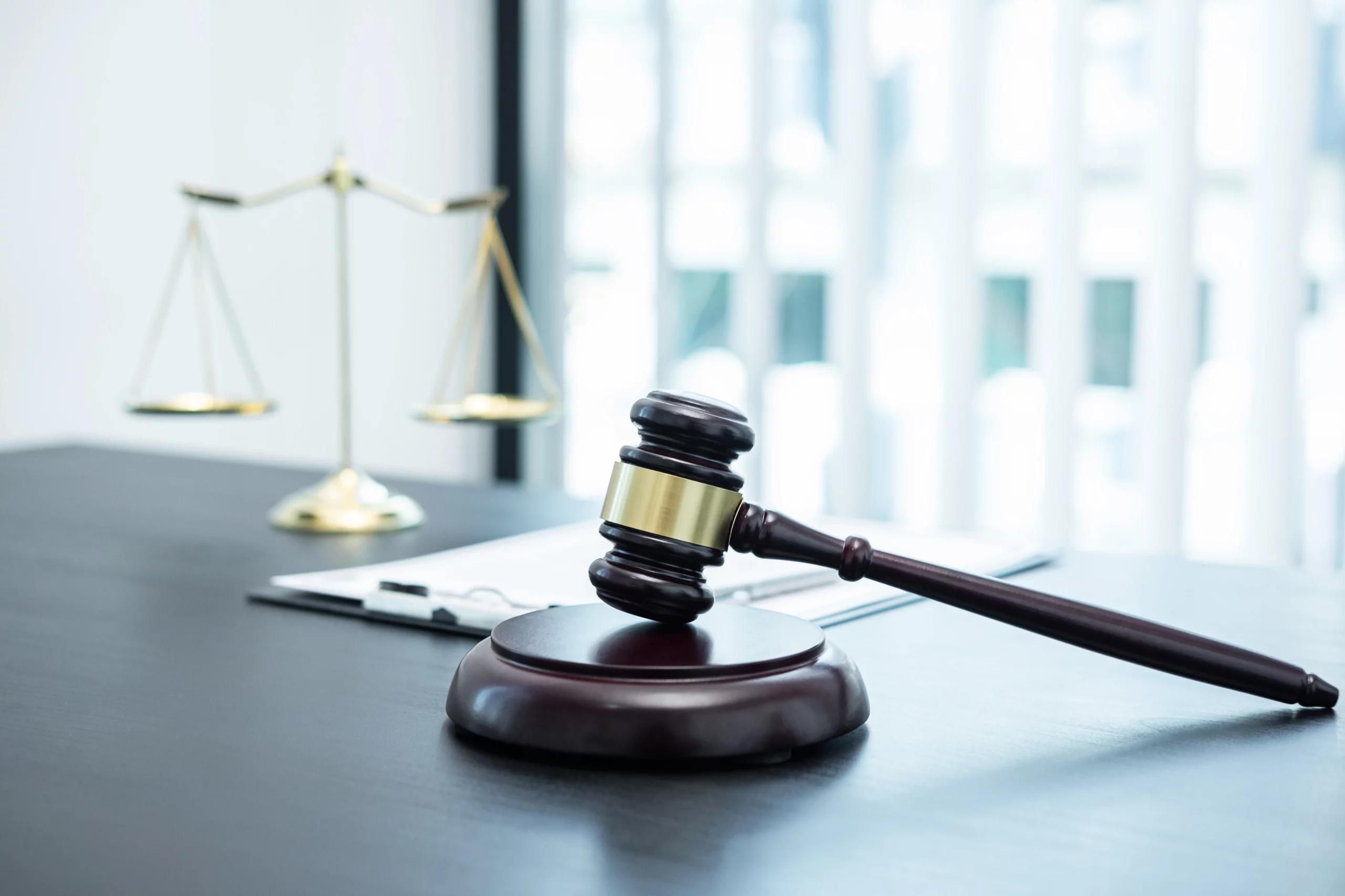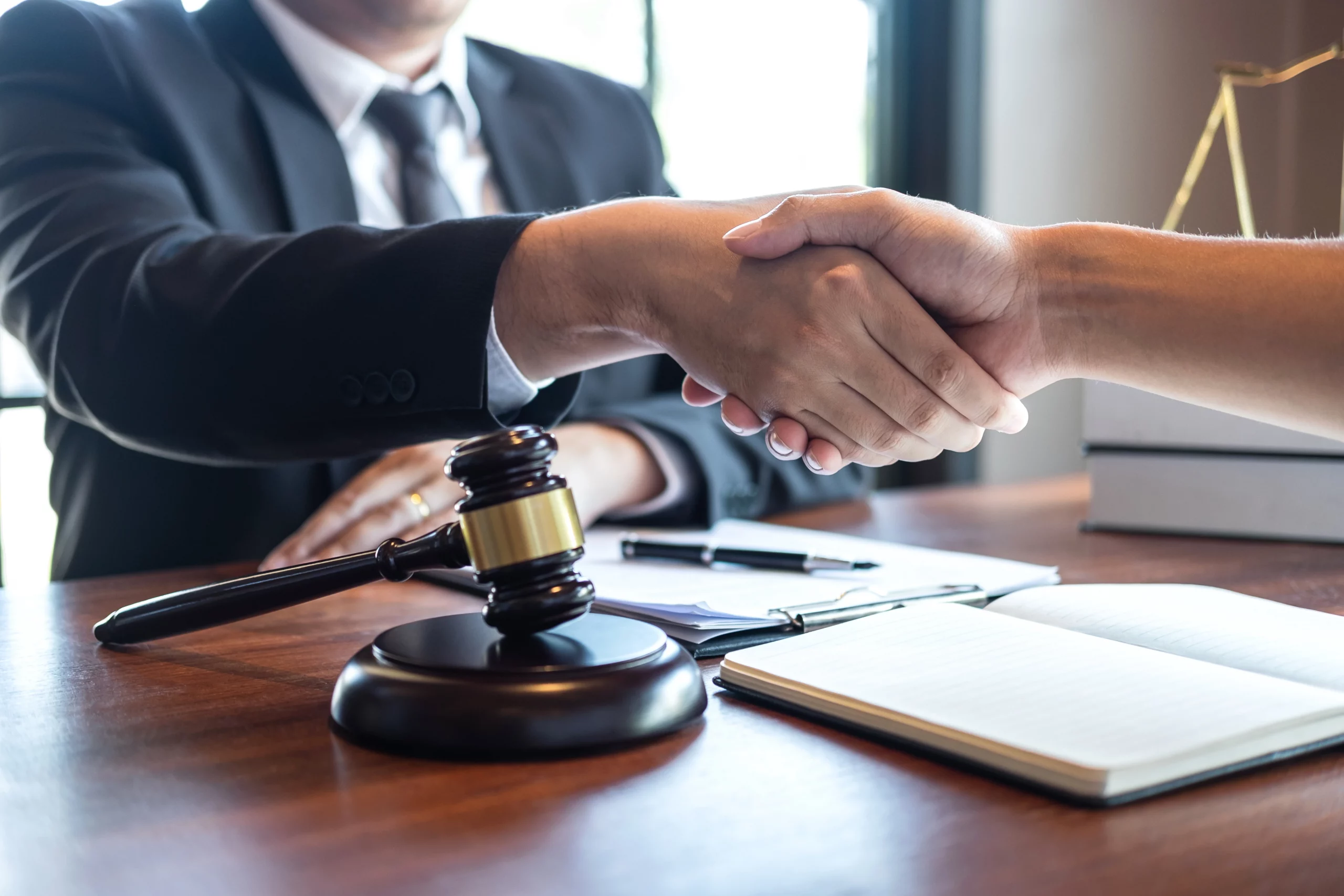Pool Accident Lawyers | Slip, Trip, and Falls
The Best Premises Liability Accident Law Firm
Premises Liability > Accidents > Pool
Explore common causes and injuries from swimming pool accidents. Learn how to prove fault if you or a loved one are hurt in someone’s pool.
According to statistics compiled by the Centers for Disease Control and Prevention (CDC), 163 children younger than 15 drowned in swimming pools or hot tubs between May and September of a single year.
According to the CDC data, 112 of the 163 drowning casualties were younger than five years old.
Even though swimming pools are often a welcome relief from the heat, they have also been linked to several major injuries and fatalities. Pools are a significant source of near-drowning and other personal injuries due to various factors, including falls into the water and diving into shallow areas.
You would have legal recourse if you or a loved one were hurt in a swimming pool accident that was someone else’s responsibility.
Owners of public pools are also subject to liability. If you are hurt in a public pool, you can sue the hotel, water park, or government agency that operates the pool to get compensation for your medical bills and other losses.
It is important to remember that a skilled personal injury attorney should handle any cases involving deadly drowning or other serious swimming pool injuries, especially if the victims are minors.
Free Consultation
NO FEE UNLESS WE WIN
POOL ACCIDENTS AND THEIR ROOT CAUSES
While drowning is the most obvious risk associated with pools, other dangers might be posed by the pool’s infrastructure and surrounding surroundings.
The most common causes of swimming pool accidents include:
- Wet surfaces
- Low water levels
- Lack of supervision (by a lifeguard, parent, or others)
- Inadequate warning signs
- Broken glass in the pool area
- Missing emergency devices (for example, flotation devices)
- Faulty or dim pool lights
Occasionally, you may injure yourself while swimming. If you were, say, horseplaying at the time of your accident, you might have helped cause it.
Victims might contribute to a pool accident by imbibing too much alcohol. The CDC states that up to 70% of teen and adult drowning deaths associated with water sports involve alcohol.
Accidents involving swimming pools and hot tubs are exacerbated by the intoxicating effects of alcohol, which impairs a person’s reflexes, decision-making, and equilibrium. Sun exposure causes dehydration for many pool-goers. The intoxicating results of alcohol are amplified by dehydration.
You are still entitled to compensation for your injuries and other damages, even if you were partially responsible for the pool accident. However, there may be laws in effect in your state that serve to lessen the sum you receive.
TYPICAL INJURIES SUSTAINED BY INDIVIDUALS WHILE SWIMMING
Like the many factors that can lead to an accident in a pool, the types of injuries sustained in such incidents also vary.
Injuries such as cuts,
- broken bones
- Sprains are common in pools.
- Traumatic brain injury,
- including concussions
There are many different types of drowning accidents, including:
In the United States, swimming pool accidents happen frequently. The annual number of pool and spa-related injuries seen by emergency rooms for children under 15 is estimated to be around 6,400.
While spending time at a pool can be a lot of fun, it is important to remember that there are measures you can take to keep yourself safe from drowning and other injuries.
You may help reduce accidents in
- swimming pools by doing things like:
- not swimming alone, checking the depth of the water before jumping or diving in,
- choosing not to push or jump on other people,
- being cautious when walking on slick decks and surfaces,
- limiting your time in the sun.
Parents may help keep their kids safe around pools by
- keeping a close eye on them at all times;
- Enrolling them in swim lessons;
- Learning CPR,
- Making sure their kids don’t play near drains,
- checking the depth of the pool’s water, and so on.
SWIMMING POOL ACCIDENT LIABILITY PROOF
The host’s responsibility is to ensure their pool’s safety while inviting guests.
When an individual is hurt on the property of another, Premises liability rules can be used to establish legal responsibility. If you can prove that the property owner was at fault for the accident, you will be entitled to monetary damages.
Negligence is the usual standard of proof for holding a pool owner accountable for injuries sustained on their property.
There is an obligation on the part of all pool owners to lessen the likelihood of drowning and other injuries occurring at their facilities. To prove negligence, you must show that the owner breached this obligation. Evidence showing the owner did nothing to fix an unsafe condition is often sufficient to prove a violation.
Varying types of injured parties may be subject to different requirements under the premises liability statutes of a given state. For example, while a pool owner may have a duty of care toward invitees, those who enter the pool through trespassing are generally not covered by the owner’s liability policy.
THE ANALYSIS OF POOL OWNER NEGLIGENCE
On a beautiful bright day, Lisa, age 25, accepts an invitation to visit a friend. There is a diving board in the pool at this house.
Lisa and her pals go to the pool and proceed to the diving board. She braces herself at its rear and prepares to enter it. She sprints ahead and then leaps into the air. Nonetheless, the board doesn’t move or provide any spring when she lands back on it.
Lisa ends up falling into the pool after straining her knee. Lisa could go back onto the pool deck with the help of her companion.
A local pool service checks the diving board after an accident. The company found out that the diving board’s damaged spring-activating wheel has been causing it to rise and fall intermittently. Lisa got hurt because of that split.
In this case, Lisa would have to prove that her friend was irresponsible to pursue a personal injury claim under her homeowner’s insurance policy.
Considering her buddy invited her over, she has a good chance of winning her case. In light of Lisa’s offer, her friend is responsible for providing a properly secure pool for her use.
Every reasonable pool owner knows they must regularly inspect their diving board and pool. The owner is responsible for addressing known dangers, such as the broken diving board.
The pool owner is responsible for fixing the problem because they should have known about it.
Trespassing to get to the pool might change the outcome for Lisa. Property owners do not owe trespassers a duty of care in most jurisdictions. The trespasser could not prove negligence on her part because there was no obligation owed to her.
CHILDREN TRESPASSING EXCEPTED IF THEY ARE AN ATTRACTIVE NUISANCE
While many jurisdictions do not owe a duty of care to trespassers, the attractive nuisance theory provides an exemption in several of these states.
According to the concept, if a child trespasser is injured on private property because of something that “attracted” or “lured” them into the property, the property owner may be held liable for the kid’s damages. The presence of a swimming pool is almost certainly going to be an aesthetically annoying presence.
The Doctrine of the Appealing Nuisance: an Illustration
First-graders While playing one afternoon, John and Pam noticed that their next-door neighbours had installed an in-ground pool and tiled deck. A fence does not enclose the pool, and there are no signs to alert passers-by to the potential danger.
John and Pam decide to investigate the situation by going onto the neighbour’s property. John slips on the wet tile as he and his friend get close to the pool’s edge, breaking his left arm.
Subsequently, John may be able to hold the neighbour accountable for his harm by invoking the attractive nuisance theory.
Small and young, John is a child. When he saw the neighbour’s swimming pool, he decided to trespass onto their property, where he, unfortunately, suffered an injury. The careless landowner should have put up a fence to protect guests from harm.
PRODUCERS OF DANGEROUS POOL GOODS
Sometimes, an injury is brought on by one of the pool’s components. Injuries of a serious kind have been linked to pool drains and filters, for instance.
Unless the owner knew there was an issue, they are not normally responsible for accidents caused by defective pool products.
Instead, the sufferer will file a product liability claim lawsuit against the product’s maker or installation.
RESTITUTION FOR DAMAGES CAUSED BY A POOL’S OWNER’S NEGLIGENCE
If you were hurt because a pool owner was careless, they should pay for your medical bills and other expenses.
- Medical bills
- Lost wages – both past and future
- Out-of-pocket expenses
- Property damage
- Pain and suffering
CLAIMS OF WRONGFUL DEATH
A deceased family member might file a wrongful death suit against the pool’s owner if the victim drowned due to the owner’s negligence.
A wrongful death lawsuit is a legal proceeding initiated to recover monetary damages from the person or entity whose carelessness directly resulted in the death of another.
An attorney can launch a wrongful death action on behalf of the deceased person’s family or the deceased person’s estate.
PLACES WHERE PEOPLE OFTEN GET HURT IN POOLS
Accidents involving swimming pools are not exclusive to those found in homes. Injuries and accidents frequently occur at public swimming facilities.
- Governmental entity (municipal or school)
- Apartment complex
- Waterpark
- Hotel or resort
- Campground
- Gym or fitness club
The owners of these properties are responsible for ensuring that their swimming pools are safe for their guests. This obligation includes the pool and all adjacent amenities, such as locker rooms, concession stands, and showers.
This responsibility, however, may be defined slightly differently by state premises liability laws depending on the nature of the property in question and the circumstances surrounding the incident in question.
To give one concrete example, “invitees” are those who attend a private pool or hot tub after being invited by the owner. Owners have a responsibility to invitees to ensure the safety of their pool by taking reasonable measures to prevent injury or death from drowning and by maintaining and repairing the pool as needed.
A property owner may also be obligated to inform you of any dangers associated with swimming pools if they are not visible. The owner may, for instance, affix a sign reminding guests that there will be no lifeguard on duty during certain times of the day, such as during lunch.
WATER ATTRACTIONS AND THEME PARK SWIMMING POOLS
Get in touch with a personal injury attorney or law company if you’ve been hurt at a water park. That’s because, to enter the park, you probably agreed to release the park from all responsibility for any injuries you might sustain there.
The release of liability you sign when you visit a waterpark acts as a binding legal agreement between you and the park. If you were hurt while visiting the waterpark, you might have waived your ability to sue the establishment for damages by signing a waiver.
Waivers of liability for injuries sustained during company operations shield companies from insurance claims and legal proceedings. Signing a waiver absolves the company of all responsibility for your injuries. Waivers also indicate that the corporation made participants aware of the inherent dangers of using the facility or participating in the activities.
Even if you signed a release, you might still be able to sue a waterpark for injuries you sustained in the park’s pools or the death of a loved one. However, having your signature on the document may make it more difficult to establish fault.
To determine if the waiver you signed is enforceable or whether the park owners were grossly negligent, you should consult with an experienced injury attorney who has previously worked with the relevant waterpark.
GOVERNMENT-OWNED SWIMMING POOLS
If you’ve been hurt in a public pool that the government operates, just as you should if you’ve been hurt at a waterpark, you should consult with a qualified personal injury attorney.
You can still sue the government if you get hurt. Filing a claim against a government entity is more complicated and requires a distinct procedure.
For instance, a notice of claim must be submitted before a claim can be submitted to the government. There are a few more formalities to go through, and some of them have strict deadlines.
There may not be enough time to remedy a mistakenly filed personal injury claim if it was not submitted on the correct form or if the form was not filled out completely.
INDIVIDUAL STATES MANDATE COSTS.
There are several regulations that public and private pool owners must follow in addition to those outlined in premises liability statutes by many different levels of government.
In Florida, for instance,
- homeowners with pools must adhere to a number of regulations designed to prevent accidents.
- In Florida, a pool fence must be installed at the height of at least four feet.
- Cover their pool or hot tub when not in use, and keep an eye on any kids who could be in there.
The Colorado Swimming Pool Safety Act imposes even stricter regulations on pool owners.
According to Colorado’s rules:
- Pool enclosures in Colorado must have a self-latching gate at least 60 inches wide, and
- the surface of the enclosure must be clear of anything that could be used as a foothold or handhold.
- Additionally, suction outlets in pools must be covered with anti-entrapment grates.
Operators of public swimming pools in Colorado law are required by law to maintain the areas immediately adjacent to the pools.
If you were injured in a swimming pool accident, you might be able to file a personal injury claim against the pool’s owner if the owner did not comply with local or state regulations.
Should You Suffer an Injury While Swimming, Seek Legal Counsel
If you were only slightly hurt and the pool owner is a private citizen, you can probably handle your claim. The owner’s house insurance policy should cover your damages.
An experienced swimming pool accident attorney is necessary if you or a loved one sustained serious or permanent injuries in a pool accident.
Suppose a person has suffered a catastrophic injury or lost a loved one due to drowning. In that case, the insurance company will typically make a deliberately lower settlement offer if the family does not have legal representation. The insurance firm is betting that you lack the resources to pursue a just resolution on your own.
When the property owner tries to place the responsibility for an accident on you or someone else, it can complicate a premises liability lawsuit, such as an injury sustained in a swimming pool. You need a qualified lawyer to look out for your own best interests and make sure you get compensated by anyone who might be at fault for your injuries.
You may usually get a free review of your case from a law firm specialising in personal injury. For no charge, you can consult with a legal advisor and get all your concerns addressed.
In auto accidents and premises liability cases, many lawyers are willing to take cases on a contingency fee basis. You are not responsible for paying the attorney’s costs unless your claim is settled or your case is won in court. Get helpful advice regarding your swimming pool injury claim at no risk or expense.
COLORADO SWIMMING POOL ACCIDENTS OFTEN RESULT IN LIFE-THREATENING INJURIES.
Accidents involving household and public pools cause thousands of annual non-fatal injuries. Thousands of Floridians take advantage of the year-round warmth by swimming in one of the many open pools in the Sunshine State. Unfortunately, like any other kind of water recreation, swimming in pools carries with it the possibility of significant damage.
Injured parties in Colorado may file a personal injury claim to seek compensation where their injuries were caused by the carelessness or recklessness of the pool’s owner or operator. Under Colorado’s comparative fault statute, victims may be allowed to seek compensation even if they contributed to the cause of the accident.
Swimming pool accident victims may be eligible for substantial financial compensation. Call The Warrior Personal Injury Lawyers at 719-300-1100 to speak with an attorney at no cost to you.
ARE THERE ANY COMMON CAUSES OF ACCIDENTS IN SWIMMING POOLS?
Swimming pool accidents can happen at any time of day or night and in several different ways. In addition, the presence or absence of a professional lifeguard does not prevent injuries from occurring in tiny pools, hot tubs, indoor pools, and outdoor pools. The following are examples of the kind of hazards that frequently lead to mishaps involving pool-related injuries:
- Broken diving boards,
- Improper chemical storage,
- Objects left on the pool deck,
- Faulty drain covers are just a few of the
- Hazards that can arise from
- Poorly maintained pools,
- Cracked decks,
- Slippery surfaces,
- Damaged equipment,
- Unreliable floating devices.
A pool accident can happen for a variety of other reasons as well. To determine if your injury was the product of another person’s negligence and whether you are eligible for compensation, you need to consult an expert attorney.
Accidents in swimming pools can cause serious harm to victims, some of whom may require extensive medical care and be sidelined from their careers. In extreme circumstances, victims may sustain permanent injuries or disabilities that render them unable to support themselves. Common pool accident injuries include:
- Skeletal fractures and brain trauma
- Injuries such as lacerations,
- contusions,
- sprains,
- SCIs, and NVIs
- Damages for medical bills,
- lost wages,
Diminished quality of life, and mental and physical anguish may be awarded in a Colorado court in the event of a swimming pool accident. Legal representation can often result in a substantially greater settlement or reward for a pool accident victim.
Colorado has a severe statute of limitations for claims stemming from pool accidents, and victims should be aware that waiting too long to file a claim could result in losing their right to compensation.
Seek free legal advice from a Colorado Springs personal injury attorney by calling one now.
Pool accident victims may be able to file a claim against whoever is responsible for the pool’s upkeep and get a substantial settlement. When people are hurt in avoidable incidents, they need the support of the Warrior Personal Injury Lawyers, who have a strong track record of success in such cases.
We put in long hours to ensure that every client we take on receives the most compensation for their claim as soon as possible. Call The Warrior Personal Injury Lawyers at 719-300-1100 to speak with an attorney at no cost to you.

FREE CASE REVIEW
We are standing by ready, willing, and able to help you. You can schedule a free consultation here on our website, or give us a call and talk to us. Whatever you prefer, we will accomodate you!








